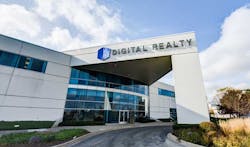Local Healthcare Companies Are Key Vertical in Boston Market
We continue our series of stories on the leading geographic markets for data center space. Data Center Frontier is partnering with DatacenterHawk to provide in-depth market reports on each city we profile. Read on for analysis on the Boston business environment.
Download the full report here.
Boston is home to 884,000 square feet (SF) of commissioned data center space, representing 88 megawatts (MW) of commissioned power, according to market research from datacenterHawk. In the fourth quarter of 2016, the vacancy rate for the region was 14.8 percent.
Most of the data center customers in the Boston market are local to the region. As with other major Northeast cities, Boston’s market is influenced by the relatively high cost of power, which is a challenge for users with large footprint requirements. As a result, service providers and facilities in Boston have focused on supporting key sectors of the local tech economy, including healthcare, biotech and pharmaceutical companies and software startups.
Data center tax abatement opportunities in Boston can be granted on a case-to-case basis, with some operators proving successful in the past in negotiating incentives based off the merits of their data center project. For example, the Markley Group was able to negotiate a 20-year personal property tax exemption for their proposed facility in Lowell.
The Boston healthcare industry is watching events in Washington, where budget cuts could have a chilling effort of growth funding for the region and the Boston business environment as a whole. MassBio recently noted that proposed cuts to the National Institutes of Health (NIH) “would be devastating for Massachusetts where much of the funding translates into jobs and has defined us as the global leader in developing life-saving therapies and technologies.”
Long-haul lines connect the city to other major markets, such as New York, New Jersey, and Northern Virginia, as well as Philadelphia, Pittsburgh, and Cleveland.
Connectivity
Boston has a highly developed fiber footprint, with a variety of long-haul and metro options. Long-haul lines connect the city to other major markets, such as New York, New Jersey, and Northern Virginia,
While the rates vary based on location, with higher rates downtown, most colocation providers in the area report a power cost in the 15-18 cents a kWh range.
Disaster Risk
Boston keeps a relatively stable climate with a low risk of tornadoes and earthquakes. There is, however, a risk for hurricanes and Nor’easter storms common to the area. Due to the coastal location and presence of such storms, flooding has occurred in areas of Boston. The city can also experience occasional blizzards.
Over the following weeks, we will continue to explore aspects of the Boston data center market, including the factors driving data center market growth and supply and demand trends in the area.
For more on the Boston market, we invite you to download the Data Center Frontier Special Report: The Boston Data Center Market, sponsored by Digital Realty.






